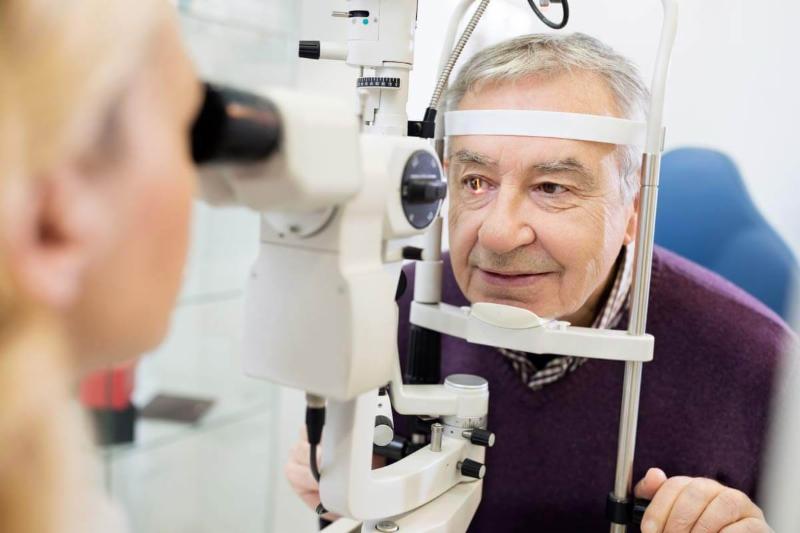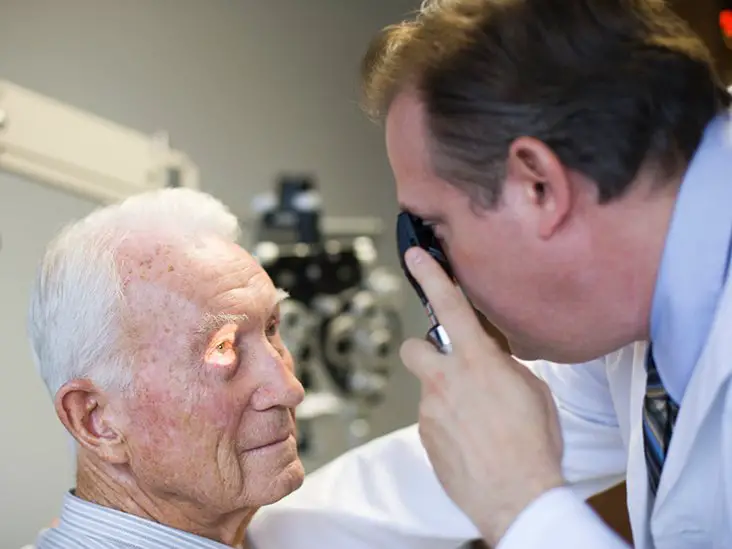Does Medicare Cover Vision Care
While Original Medicare does not cover routine vision exams, glasses or contact lenses, Medicare Part B may cover certain tests and treatments for serious eye conditions. But in those exceptions, you may still have to pay out-of-pocket for a copayment and any deductible.
Vision Care That Medicare Part B Covers
- Eye exams for people with diabetes.
- Glaucoma tests for people at high risk.
- Macular degeneration tests and treatment.
These exams are generally allowed once per year under Medicare Part B if you qualify.
Your doctor or other health care provider may recommend you have these exams or related services more than once a year. If thats the case, you may be responsible for some or all of the costs out of your own pocket.
Ask why theyre being recommended and if Medicare will cover them.
- Vision changes from blurry to clear at times
- Blank or dark areas in your field of vision
- Poor night vision
- Colors appear faded or washed out
You will be required to pay 20 percent of the Medicare-approved price for your doctors services. Your Medicare Part B deductible also applies to the exam. If the exam takes place in a hospital outpatient setting you will also be responsible for a copayment.
What You Need To Know About Medicare Eye Exams
Making sure that you maintain good eye care is essential to good health, especially when you and your eyes start aging. Thats why you may wonder if your Medicare plan covers your annual vision exam with your optometrist.
Heres a quick overview of information surrounding Medicare eye exams and a number of simple ways to find eye insurance that keeps your budget in sight.
When Medicare Pays For Eye Exams And Glasses
Medicare only covers medical eye exams and related treatments, with a few exceptions. Since Part A is your hospital coverage, coverage would only kick in if you suffer a traumatic eye injury or emergency that requires you to be admitted to the hospital. Most of your eye care will be covered by Part B.
Eye exams Medicare Part B covers
If you need a medical eye exam , your exam and care are covered by Part B.
Medicare Part B also covers cataract surgery, including the specific exams leading up to it. Heres when one of those previously mentioned exceptions appears: After cataract surgery, Medicare will cover one pair of conventional eyeglasses or conventional contact lenses after each surgery. This is the only time Medicare will pay for eyeglasses.
Medicare Part B also covers the following eye care services:
- An annual glaucoma screening for high-risk patients. You are usually considered high risk if you have a family history of glaucoma, are an African American over age 50, are a Hispanic American over age 65, or if you have diabetes.
- An eye prosthetic and certain maintenance of the prosthetic if you lose your eye due to trauma or surgical removal.
- Certain screenings, diagnostic tests, and treatments for age-related macular generation.
- Contact lenses used to treat a medical condition.
Don’t Miss: Are Resident Aliens Eligible For Medicare
Does Medicare Offer Vision Care
Vision care can range from getting glasses to cataract surgery. Many Medicare beneficiaries need some level of vision care, so it is important to know how Medicare insurance can help pay for these services.
Original Medicare
Original Medicare, which includes Part A and Part B does not cover routine vision exams or corrective lenses, but Part B helps cover certain vision-related services if you have eye disease or injury.
Part B vision care coverage is limited to medically necessary treatment for eye problems. Some of the eye conditions covered by Part B are a common, normal part of aging like cataracts or macular degeneration. Others are associated with risk factors like having diabetes or a family history of glaucoma. For a comprehensive look at what vision care Part B covers read on and learn more on the Medicare website.
Medicare Advantage Plans
You can access these Medicare-covered services through Original Medicare or a Medicare Advantage plan. MA plans provide the same benefits as Original Medicare does, so if a vision service is covered under Original Medicare Part B, it is also covered under a MA plan.
Most MA plans also include some noncovered Medicare services, such as routine eye exams and financial allowances for corrective lenses. Some Medicare Supplement Insurance plans offer discounted noncovered Medicare vision services as an additional benefit. Both MA plans and Medigap plans are approved by Medicare and are offered by private insurance companies.
Does Medicare Cover Eye Exams For Macular Degeneration

If you have macular degeneration, or your doctor suspects you do, Medicare Part B generally covers eye exams and tests to diagnose the disease, related doctor visits, and certain injectable drugs used to treat macular degeneration.
Part B generally covers allowable charges at 80% after your deductible is met.
Read Also: Does Medicare Pay For Blepharoplasty
Medicare Vision Benefits Medicare Part D
Medicare Part D offers prescription drug coverage, which you can sign up for to work alongside your Medicare Part A and Medicare Part B coverage. Medicare Part D Prescription Drug Plans are available from private, Medicare-approved insurance companies. A Medicare Prescription Drug Plan or a Medicare Advantage Prescription Drug plan may cover certain products related to vision care, like eye drops or other vision medications prescribed by a doctor.
Medicare information is everywhere. What is hard is knowing which information to trust. Because eHealthâs Medicare related content is compliant with CMS regulations, you can rest assured youâre getting accurate information so you can make the right decisions for your coverage.Read more to learn about our Compliance Program.
Medicare Advantage And Vision Coverage
If you want a Medicare-based plan that offers vision coverage, Medicare Advantage is one option to consider.
With a Medicare Advantage plan, you are entitled to all of the benefits covered under Original Medicare , but they are provided by private insurance companies instead.
This allows you to choose a policy that offers vision coverage in addition to the typical Medicare coverages. You may pay a bit more for it, but it may be cheaper than paying your own expenses toward exams, eyeglasses, and contacts on an annual basis.
Do not confuse Medicare Advantage with Medigap insurance. Medigap doesnt typically offer vision care or eyeglass benefits, but it can be used to help cover costs associated with copayments, coinsurance, and deductibles.
Medicare vision coverage is limited, but it does provide benefits in some cases. Its important to always check with your individual plan to know for sure what your policy will pay and what amount youll be responsible for.
MORE ADVICE
Read Also: What Are All The Medicare Parts
How Else Can You Get Eye Exam Coverage
Private vision insurance, provided by many employers and also available to individuals, is a way to spread out over the year some of the costs of eye exams, eyeglasses and contacts, and possibly save money. You might be able to get insurance for vision care for about $20 per month.
»MORE:What will you spend on health care costs in retirement?
For some people, it may make sense to simply pay for their eye exam out of pocket. The average cost of a dilated eye exam, including a vision test, glaucoma check and other assessments, is about $200 for a new patient or $128 for an established patient.
For people with low incomes, Medicaid in most states covers routine eye exams. Some states have copays, but they’re usually small.
The American Academy of Ophthalmologys EyeCare America program offers eligible people ages 65 and up an eye exam by a volunteer ophthalmologist, often with no out-of-pocket cost. You don’t need a low income to qualify for this program.
Medicare Coverage For Glaucoma Tests
Medicare Part B covers one glaucoma test every 12 months if youre at high risk for glaucoma. The doctor who conducts the exam must be licensed to supervise glaucoma screenings in your state before Medicare will cover the cost.
Glaucoma can damage the optic nerve that connects your eye to your brain. Its caused by high pressure inside the eye and can lead to blindness.
Groups at High Risk for Glaucoma
- People with diabetes
- People with a family history of glaucoma
- Blacks ages 50 or older
- Hispanics ages 65 or older
You will still be required to pay 20 percent of the Medicare-approved cost for the glaucoma test and your deductible will apply. You will also have to pay a copayment if the test is part of a hospital outpatient setting.
Read Also: Will Medicare Pay For An Inversion Table
Does Medicare Cover Eye Surgery
Although Medicare doesnt cover vision, hearing, or dental procedures, there are certain exceptions. For instance, if you require eye surgery or have a chronic eye condition that puts you at high risk, Medicare can cover cataract surgery or exams for high-risk patients with diabetes.
Medicare can cover cataract surgery with the exception that its done using traditional surgical techniques or lasers. Medicare would be able to cover 80 percent of the cost of medically necessary cataract surgery after the deductible is met. Additionally, Medicare Part B can help pay for corrective lenses after youve undergone cataract surgery to implant an intraocular lens. If the procedure is deemed medically necessary, the corrective lenses would be covered by Medicare.
Does Medicare Cover Glasses
Medicare doesnt usually cover eyeglasses or contacts, so youd have to pay 100 percent of the cost with the exception of certain eye conditions. In some cases, Medicare Part B can help you pay for corrective lenses if youve undergone cataract surgery to implant an intraocular lens.
After cataract surgery, you can receive up to one pair of eyeglasses with standard frames or one set of contact lenses. If youve had cataract surgery and require eyeglasses and other vision care, youd still have to pay 20 percent of the Medicare-approved amount and the deductible.
You May Like: What Is A Medicare Coverage Gap
Does Medicare Cover The Cost Of Cataract Surgery
Medicare does cover cataract surgery as a medically necessary surgery. You can work with your doctor and the hospital or facility where youll have the surgery to help estimate the costs. Youll also want to determine whether the surgery will be inpatient or outpatient.
This will impact what you pay. You can alsoto check if youve met your deductible, which must happen before Medicare will start to pay.
Do You Wear Glasses Youll Want To See This

According to the Vision Council of America, approximately 75% of adults use some sort of vision correction.1 Whether its eyeglasses, contacts or cheater readers, thats a pretty big number.
Given that number, you may be surprised to learn that, unlike most Medicare Advantage plans, Original Medicare does not cover routine vision care.
It does, however, cover medically necessary treatments that may improve or cure chronic eye conditions like glaucoma or cataracts. But you’ll need to check with your doctor to see if your condition makes the cut. For example, Lasik surgery for vision correction is not considered a medical necessity, so its not covered by Medicare.
Also Check: How Often Does Medicare Pay For Diabetic Foot Care
Will Medicare Pay For Treatment For A Detached Retina
A detached retina can cause permanent vision loss if not treated quickly. Medicare will cover surgery to repair a detached retina, but youll be responsible for your Part B deductible and 20% coinsurance, which Medigap can help take care of. Depending on where you have your procedure, a copayment might apply as well. Similarly, Medicare Advantage will cover retina surgery to preserve vision, although your out-of-pocket costs will depend on your plan.
Does Medicare Cover Eye Prostheses
Medicare covers eye prostheses for beneficiaries without an eye or who have eye shrinkage because of birth defect, vision trauma, or surgery. Youâre also covered for polishing and resurfacing of your artificial eye. Medicare will pay for a replacement once every five years.
All people enrolled in Medicare Part B are covered. Youâll pay 20% of the Medicare-approved amount for the eye prostheses, and the Part B deductible applies.
Also Check: Does Medicare Cover Bone Grafts
Eye Exams For Those With Diabetes
People who have diabetes can develop a condition called diabetic retinopathy. This happens when elevated blood sugar levels lead to damage of the blood vessels supplying your retina. It can cause vision loss.
If you have diabetes,Medicare will cover eye exams to detect diabetic retinopathy once per year.
Does Medicare Cover Eye Exams And Glasses
- While Medicare Parts A and B don’t cover routine eye exams vision care, many Medicare Advantage plans may offer vision benefits to include routine eye exams, glasses and contacts.
Medicare is a valuable resource for over 60 million older adults, who depend on the program for most of their medical insurance coverage.
As broad as Medicares coverage can be, many seniors medical needs go beyond what Medicare can provide. In many cases, such as routine vision and eye care, Medicare beneficiaries may have heard there is no coverage available for eyeglasses or contact lenses, vision testing or cataract surgery.
While it is true that Original Medicare not expressly cover vision care, most Medicare enrollees do have some options available to help pay for needed eye exams and care. One option is enrolling in a privately-sold Medicare Advantage plan.
Read Also: Does Medicare Pay For Air Evac
Will Medicare Cover Macular Degeneration
Age-related macular degeneration is the leading cause of vision loss in adults 50 and over. Medicare Part B will cover diagnostic tests and treatment for AMD, which may include drops or eye injections. As is the case with other covered services, youll still be responsible for 20% of the cost of your services or treatment after meeting your deductible, although a Medigap plan will cover some or all of those costs. Medicare Advantage will cover diagnostics and treatment for AMD as well, although as is the case with other services, the out-of-pocket costs will vary by plan.
Medigap Plans Can Cover Out
A Medicare Supplement Insurance plan can help pay for some of the out-of-pocket costs associated with the vision benefits covered by Original Medicare.
For example, each of the 10 standardized Medigap plans that are available in most states provide coverage for the Medicare Part B coinsurance or copayments you might face when you receive covered outpatient vision treatments.
A licensed agent can help you decide on a Medicare option that works for you. Call today to speak with a licensed agent and compare the Medigap plans that are available where you live.
Don’t Miss: What Medicare Coverage Do I Need
Does Medicare Coverage Include Vision And Dental Care
When it comes to vision and dental care, things can get a bit confusing concerning what coverage you have with your Medicare benefits. Because Original Medicare Part A and Part B provide coverage for care that is medically necessary, they do not help pay for routine vision and dental care such as regular examinations, teeth cleanings or fillings, tooth extraction, eyeglasses or contact lenses.
But not all vision and dental care is routine. Your Original Medicare insurance , or Medicare Advantage Plan , may offer coverage for certain preventive and diagnostic exams, treatments, surgeries, or some supplies. It is important to know what coverage you have regarding your vision and dental care. Having all the information about your Medicare benefits is essential for making the best decisions regarding your health care.How does Medicare cover vision care?
If you require vision care as a medical emergency or due to traumatic injury, Original Medicare Part A covers that care if you are treated as an inpatient in a hospital. You must be formally admitted as an inpatient at a Medicare-approved facility.
Medicare recipients who have Original Medicare Part B have coverage for the following preventive and diagnostic eye exams:
- Eye examinations for diabetics to test for diabetic retinopathy one time per year.
- Glaucoma tests once every 12 months if you are considered at high risk for glaucoma. People at high risk are:
Related articles:
Does Medicare Cover Vision

In a nutshell, Original Medicare doesnt cover routine eye exams. However, under certain circumstances and conditions, Medicare can cover certain types of vision care. For example, Medicare Part B covers medically necessary screenings and eye exams for high-risk individuals with glaucoma, diabetes, or macular degeneration conditions.
Additionally, if you have cataract surgery, Part B can cover medically necessary vision care such as eyeglasses or contact lenses. Medicare can also provide coverage for treatment or surgery for eye conditions such as corneal disease, eye injuries or infections.
Lets say you have an emergency and you need to be hospitalized for eye surgery. In this case, Medicare Part A can cover the hospitalization and inpatient care after you pay the deductible and 20 percent of the remaining costs. Additionally, Medicare Advantage plans offer additional coverage that Original Medicare may not cover. So, check with your individual Medicare Advantage plan to see whether they provide any vision coverage.
Read Also: Who Funds Medicare And Medicaid
Medicare Vision Benefits Medicare Part C
Medicare Part C offers an alternative way to receive your Original Medicare benefits. Medicare Advantage plans are offered by private, Medicare-approved insurers. All private insurers must offer at least the same benefits as Original Medicare , but they may include other benefits, such as routine vision, routine dental, and Medicare prescription drug coverage. When routine vision benefits are available through a Medicare Advantage plan, your premiums could be higher than those charged by Medicare Advantage plans that do not offer routine vision benefits.
Some Medicare Advantage plans include full coverage for routine vision exams, vision correction products, and other vision care. Review the specific Medicare Advantage planâs vision benefits to be sure.
